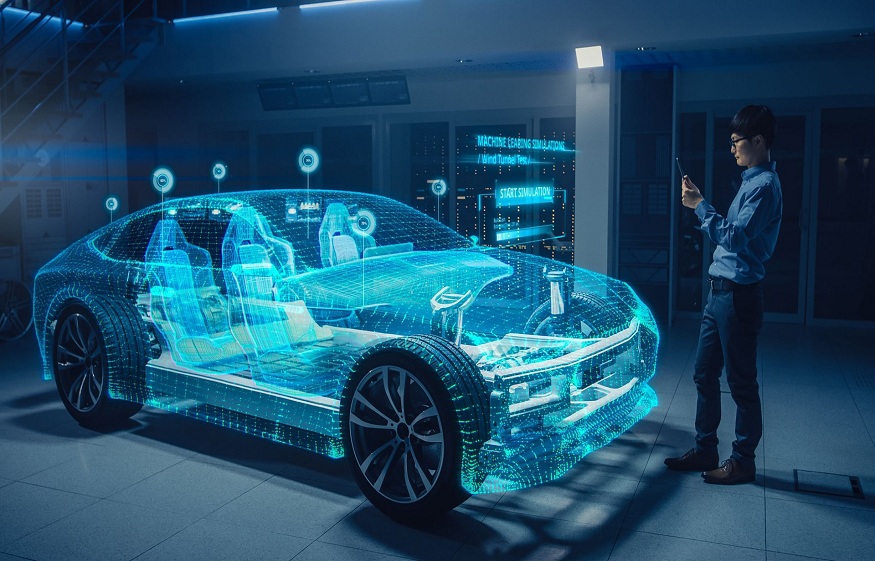Electric cars are no longer just a trend as they are now the future of automobiles. But why are electric cars gaining so much popularity?
What makes them so appealing to drivers? And how can the automotive industry meet the growing demand for eco-friendly vehicles while maintaining exceptional performance? Understand the different challenges and become an expert on the subject.
An essential ecological solution
The transition to electric cars is more than just a technological choice, it has become an environmental imperative. The impact of thermal vehicles on the environment is increasingly critical, with massive CO2 emissions and air pollution directly affecting our cities and our lives. Electric cars, on the other hand, offer a green alternative. Depending on the source of electricity used for their charging, they can be significantly less polluting, or even completely zero emissions if they are powered by renewable energies.
One of the great advantages of the electric car is its significantly reduced carbon footprint . By eliminating exhaust emissions, these vehicles actively participate in the fight against climate change. While the production of an electric car generates slightly more emissions than that of a traditional car, these emissions are quickly offset by the energy savings made during its use. Over the entire lifespan of the vehicle, the overall environmental impact is therefore significantly lower than that of vehicles with combustion engines.
Sometimes problematic autonomy
Although electric cars are a promising solution , there are still technical challenges to overcome to ensure their mass adoption. One of the main obstacles remains autonomy. Although many models on the market today offer satisfactory autonomy for most daily journeys, it is still difficult for some drivers to make long journeys without having to recharge frequently. The question of charging infrastructure remains a priority. Charging stations are still insufficient in some regions, which can make long or unplanned trips more complex to plan.
Much progress has been made in recent years. Manufacturers, such as BYD , have improved their batteries to increase range and speed up charging times. Some high-end electric cars can now travel more than 500 km on a single charge. The development of charging infrastructure is intensifying, with fast-charging stations being installed on highways and in urban areas.
Financial benefits
There are also cost benefits to buying an electric car . While the initial purchase price of an electric vehicle is typically higher than that of a combustion engine model, several factors can offset this difference over time. Charging costs are much lower than those of petrol or diesel, which can represent a substantial saving in the long run. Electric cars have significantly lower maintenance costs. These vehicles have fewer moving parts, which means less risk of breakdowns and lower maintenance costs.
Many countries offer tax incentives to encourage the purchase of electric cars , such as discounts on the purchase price or tax exemptions. These subsidies make electric vehicles more accessible and encourage consumers to opt for environmentally friendly solutions. When you consider the overall long-term savings, an electric car can be a great investment.
Ever more incredible innovations
The electric car market has experienced spectacular growth in recent years. Several major players, such as Tesla, Renault and Nissan, dominate the sector, offering models that are both affordable and efficient. But new brands are also arriving, looking to make a place for themselves in this expanding market.
Chinese manufacturers, including BYD, are particularly well positioned. BYD (Build Your Dreams) is one of the world leaders in electric automobiles, offering a range of vehicles from compact cars to luxury SUVs. The brand stands out for its expertise in battery production and its ambition to make electric vehicles accessible to a wider audience. In addition to its cars, BYD also develops charging solutions and battery technologies, thus strengthening its role in the energy transition.
Technological innovations in the electric vehicle industry are not limited to range and charging. Autonomous driving systems and advanced connectivity technologies are also playing a major role, transforming electric cars into truly connected objects. Today’s electric cars feature infotainment systems, voice commands, and mobile apps that allow drivers to track their vehicle’s performance in real time. This type of innovation is ideal for improving the driving experience and encouraging widespread adoption of these vehicles.
A new way of life
The future of electric cars looks bright, and their adoption is expected to continue to grow in the coming years. With growing awareness of environmental issues and regulatory pressures on CO2 emissions, the automotive industry is heading towards an inevitable transition. Incentives such as government subsidies, driving restrictions on polluting vehicles, and strengthening charging infrastructure will help accelerate this transition.



